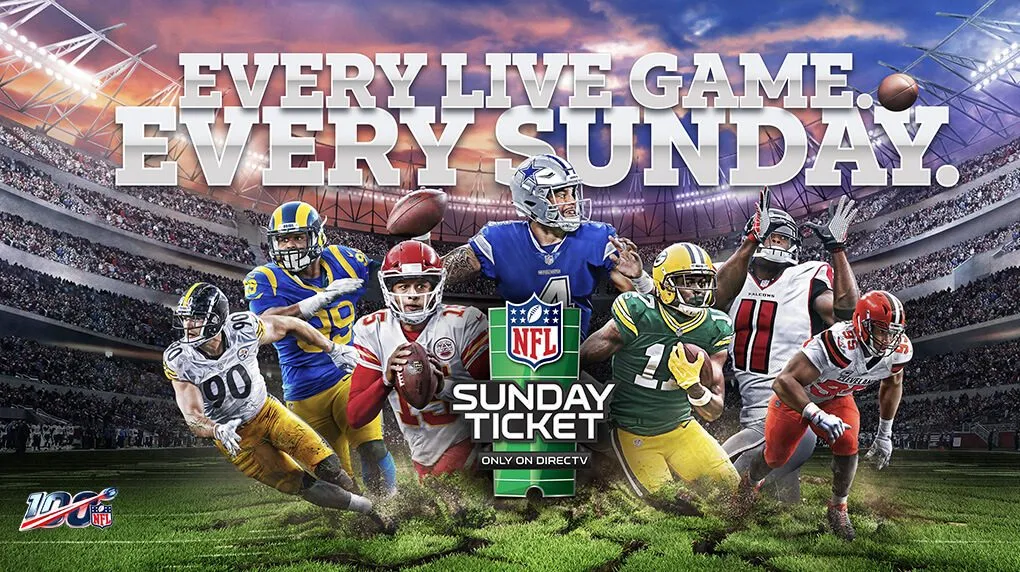“Sunday Ticket,” a lucrative broadcasting program of the National Football League (“NFL”), has for years allowed fans to watch out-of-market games (games not available in their local area) at a significant price. However, in 2024, this sports fan investment became subject to an antitrust lawsuit resulting in a federal jury determination of Section 1 and 2 of the Sherman Act violations. Luckily for the NFL, the ensuing $4.7 billion verdict was short-lived, showcasing lessons about the importance of expert testimony and the unknown future of sports broadcasting.
Jury Award
The lawsuit was filed by satellite television provider DirecTV’s “Sunday Ticket” subscribers. The class is comprised of 2.4 million residential and 48,000 commercial users who purchased the program between 2011 and 2023. Plaintiffs alleged that the NFL (i) violated antitrust laws by selling “Sunday Ticket” at an escalated price and (ii) restricted competition by giving DirectTV exclusive access to distribute the program.
On June 27, 2024, to the NFL’s dismay, the jury sided with the plaintiffs, awarding $4.7 billion in damages to the residential class and $96 million to the commercial class. Not only was the total jury award dramatic, but so were the financial implications. Under federal antitrust laws, damages can be tripled which could have made the NFL liable for roughly $14.39 billion.
Judge Gutierrez’s Jury Reversal
The NFL received relief a few days later, on August 1, 2024, when U.S. District Judge Gutierrez overturned the jury’s verdict citing the jury’s reliance on flawed economic methodologies by two of the plaintiff’s experts, including the inappropriate use of the college football broadcasting market in a but-for style analysis. Judge Gutierrez determined that without the (thrown out) expert testimony, “no reasonable jury could have found class-wide injury or calculated appropriate damages.”
Next Steps and Potential Outcomes
Plaintiffs have appealed the District Court’s jury reversal to the Ninth Circuit Court of Appeals and will be arguing that Judge Gutierrez erred in throwing out their expert testimony. If the appeal is successful, the case could be remanded for a new trial, which would give the plaintiffs a chance to present different experts and non-flawed (in the eyes of Judge Gutierrez) methodologies. Notably, the Ninth Circuit has shown receptiveness to the plaintiffs’ claims, having reinstated the case in 2019 after its previous dismissal.
Nonetheless, the plaintiffs face an uphill battle on appeal. Generally, appellate courts grant substantial deference to trial judges’ evidentiary rulings, using an “abuse of discretion” standard when reviewing expert testimony decisions. This means that the plaintiffs must show that Judge Gutierrez abused his discretion in regard to the assessment of expert methodology, not merely that they disagree with his conclusions.
Interestingly, even if the Ninth Circuit sides with plaintiffs, they might not have the final say on the matter. Justice Brett Kavanaugh has previously indicated interest in the case, suggesting in 2020 that the Sherman Act may not require competition in television rights.
Sports Broadcasting Long-Term Consequences
Regardless of how the “Sunday Ticket” litigation pans out, it has already affected the sports broadcasting landscape. Since the start of the lawsuit, the NFL has transferred the program from DirecTV to YouTube TV. This move potentially addresses some competition-related concerns since YouTube TV is a more accessible streaming platform as opposed to satellite DirecTV.
The “Sunday Ticket” litigation also serves as a signal to other professional sports leagues that their broadcasting arrangements may be scrutinized under antitrust laws, adding another factor to the already complex world of broadcasting rights. In particular, this litigation suggests that the broadcasting arrangements themselves are not the only vulnerability, but so is the pricing structure.
While the jury ruling was thrown out on procedural grounds, the underlying issues about inflated prices and competition remain relevant and highlight a tension between fans’ desire for affordable full access and leagues’ revenue maximizing efforts.
This litigation has also raised questions about the law itself, specifically regarding the scope of the Sports Broadcasting Act (“SBA”) of 1961, which grants the NFL a limited antitrust reprieve for jointly selling or transferring broadcasting rights. Within the “Sunday Ticket” litigation, the NFL argued the SBA exemption covered the program, while plaintiffs stated their disagreement claiming that the exemption does not apply to pay television services. Depending on which party ultimately prevails, the result could change how the NFL and other professional leagues organize their pay television distribution.
Conclusion
The “Sunday Ticket” litigation showcases a dramatic first two quarters from a massive score to an utter reversal. Nonetheless, the game isn’t over with appellate and potentially Supreme Court review on the horizon.

